Morocco’s cuisine stands as a vibrant testament to centuries of cultural fusion, where Berber, Arab, Andalusian, Mediterranean ,and French influences collide in a kaleidoscope of flavors. At the heart of this culinary magic lies Morocco’s famed spice tradition, a complex blend of aromatics that transforms humble ingredients into transcendent feasts.
Here is a journey through 13 Moroccan cities where you can learn the secrets of spice mastery and uncover the essence of one of the world’s most celebrated food cultures.
Marrakech
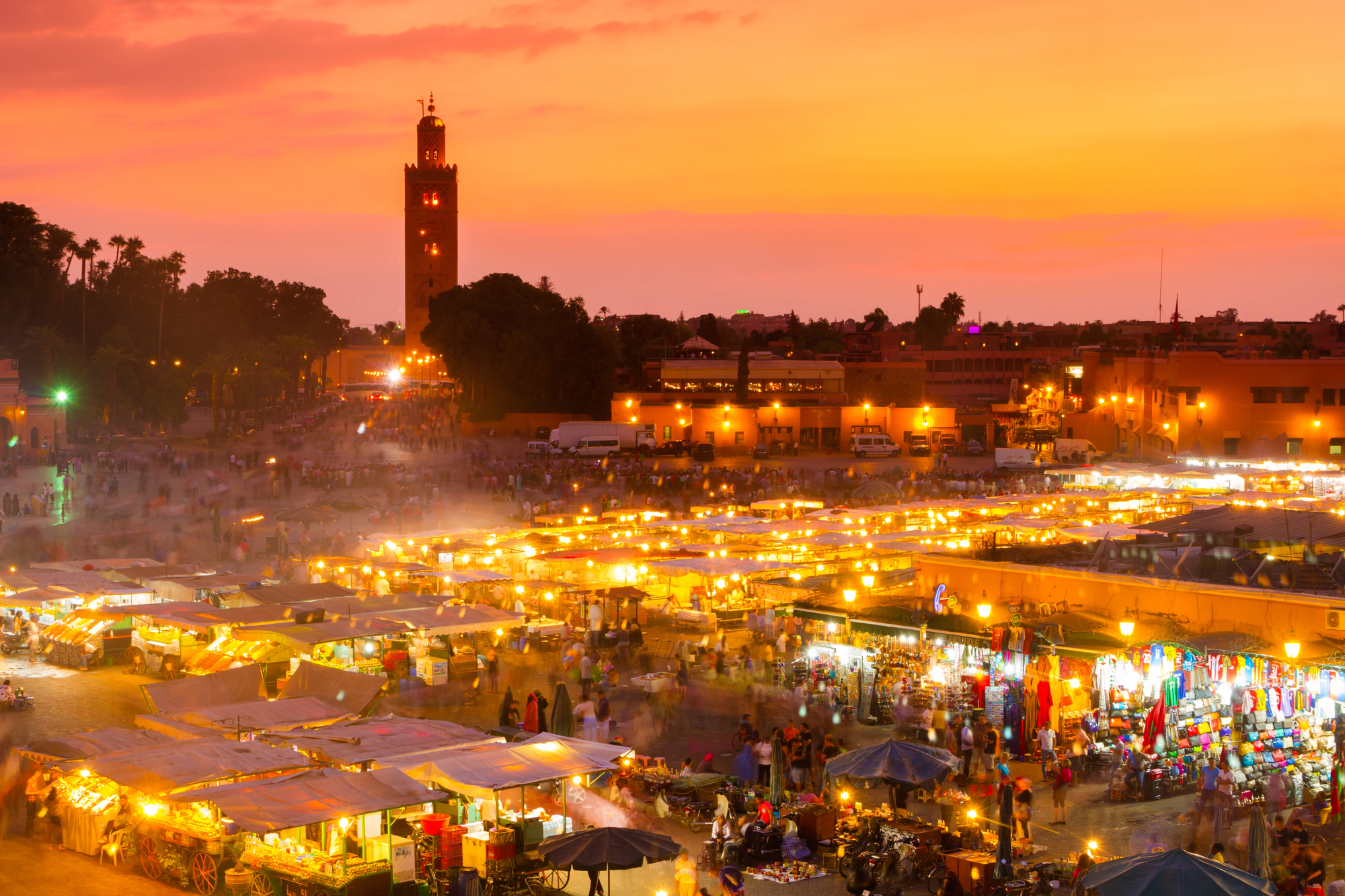
The Red City dazzles visitors with its labyrinthine medina, and its cooking school scene matches this energy with diverse options for spice enthusiasts. La Maison Arabe offers perhaps the most sophisticated experience, where dadas (traditional Moroccan female chefs) guide participants through spice identification before teaching traditional techniques in a state-of-the-art kitchen.
Each cooking station boasts individual video monitors, making it impossible to miss crucial steps in spice preparation. For something more intimate, Amal Centre provides classes while supporting disadvantaged women with culinary career training.
Beyond structured schools, options abound for home-based learning where families welcome you into their kitchens for personalized instruction in blending aromatic spice mixtures like ras el hanout.
Fes
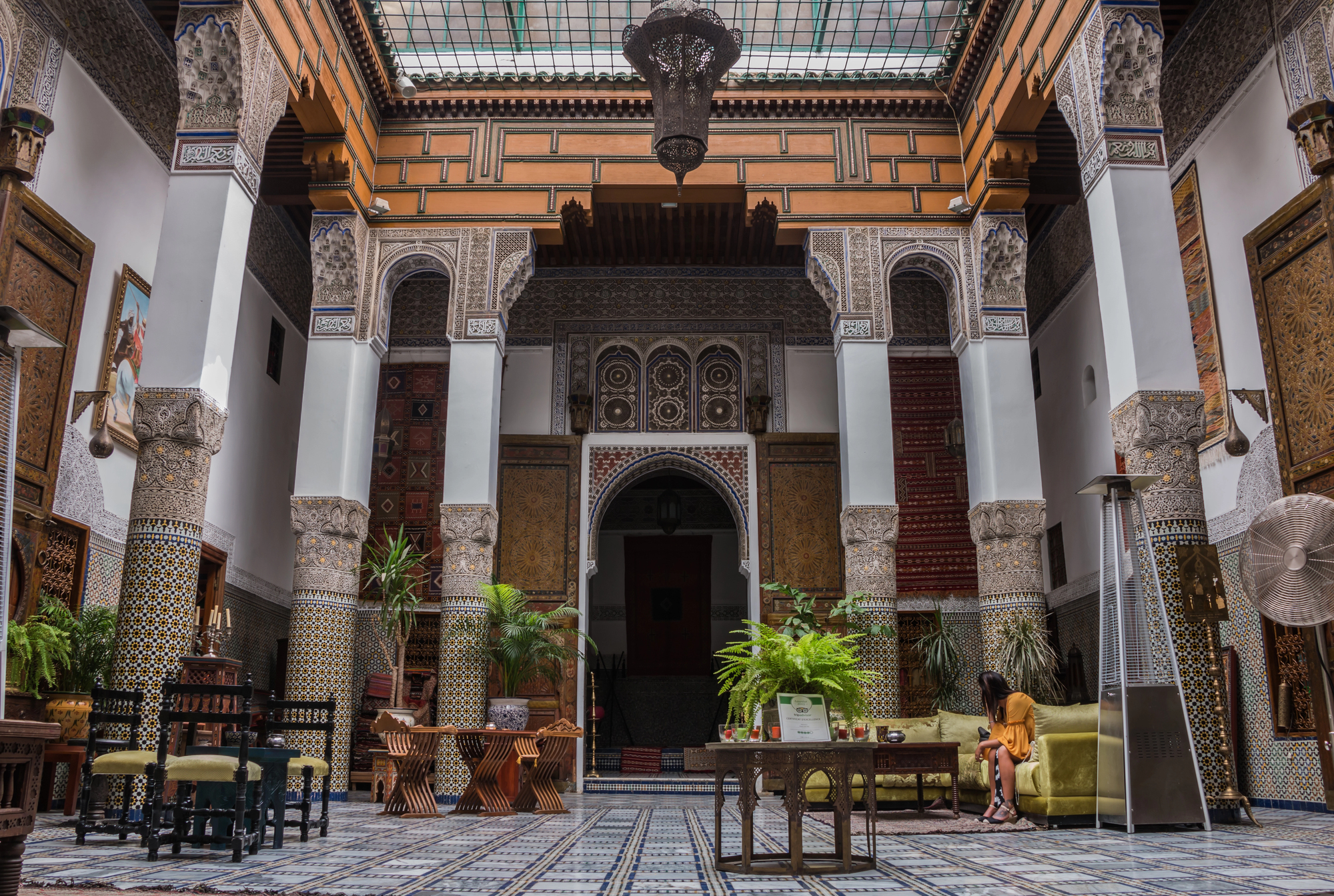
The ancient imperial capital harbors Morocco’s most refined culinary traditions, where centuries of aristocratic entertaining elevated spice blending to an art form. Cooking schools here embrace this heritage with serious instruction on the delicate balance between sweet and savory.
At Riad Dar Ziryab, small group lessons offer hands-on experience creating the city’s famed spice pastes used in dishes like pastilla, the sweet-savory pigeon pie dusted with cinnamon and sugar. Local cooking schools often include visits to the city’s spice souks, where mountains of colorful powders create an intoxicating sensory experience.
The narrow medieval streets conceal specialist spice vendors who still grind custom blends passed down through generations, making Fes the premier destination for those seeking to understand Morocco’s most sophisticated spice applications.
Essaouira
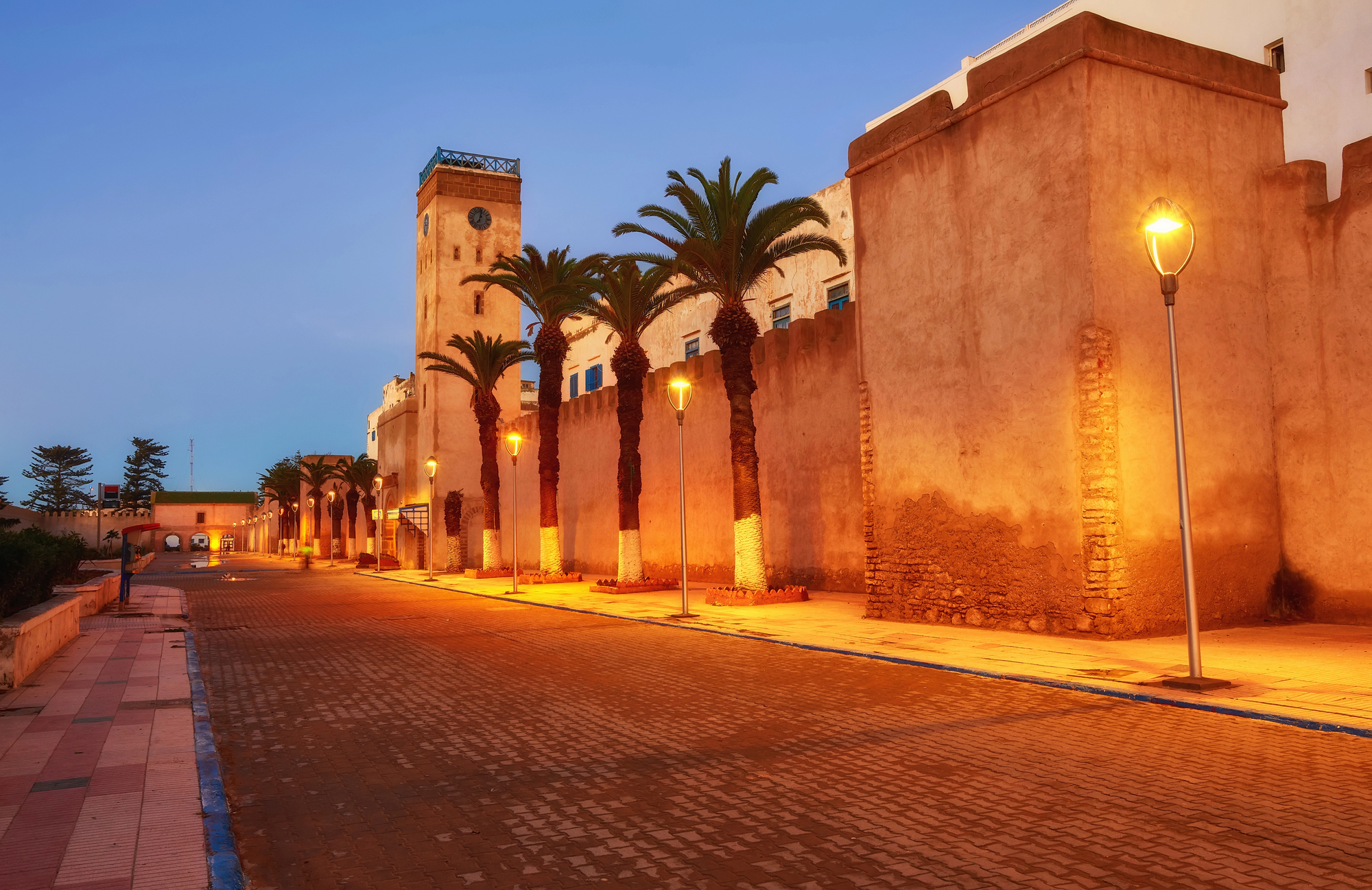
This breezy Atlantic port brings together maritime traditions and Berber influence to create a distinctive coastal cuisine. Khadija’s Kuzina stands out as the town’s beloved cooking institution, where intimate classes accommodate just 2–4 students in a home kitchen environment.
Classes adapt to student interests – perhaps focusing on the unique preserved lemon and olive combinations that define the region’s fish tagines. The windswept medina houses several schools where you’ll learn how sea air affects spice intensity, requiring adjustments to recipes originating from inland cities.
Essaouira’s spice vendors offer some of the freshest saffron in the country, making it an excellent place to learn proper techniques for this precious ingredient that is often misused by novice cooks.
Like Travel Pug’s content? Follow us on MSN.
Chefchaouen
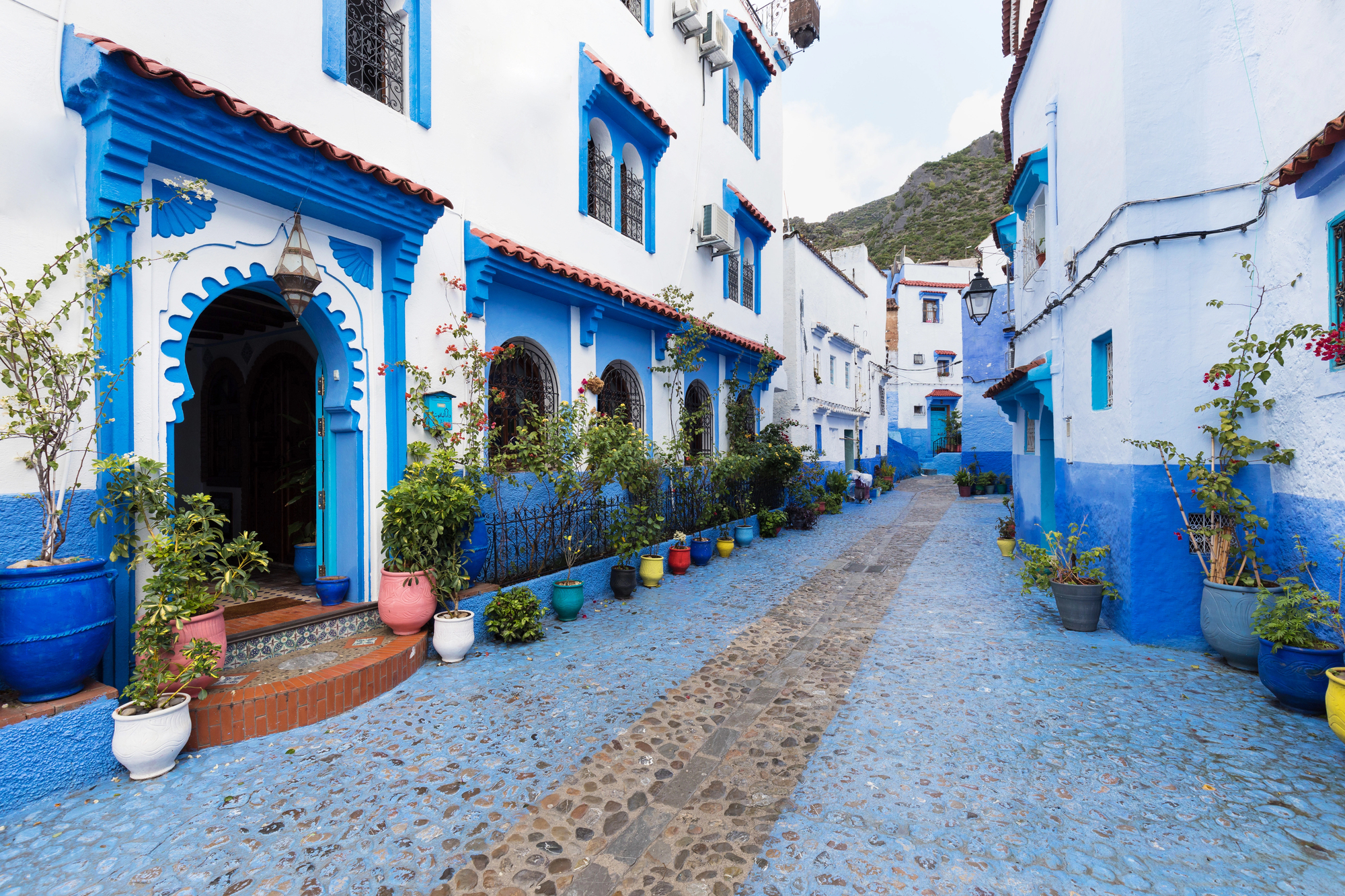
Nestled in the Rif Mountains – the Blue City offers spice classes with a distinctive northern Moroccan character. Café Clock Chefchaouen provides excellent workshops, beginning with market tours through the azure-washed medina, where instructors explain the mountain herbs unique to this region.
Students learn how altitude affects cooking times and spice potency while preparing traditional dishes against the backdrop of spectacular mountain views. The relaxed pace matches the town’s unhurried atmosphere – instructors take time to explain subtle differences between similar-looking spices and their applications.
Many classes include rooftop dining experiences where the surrounding peaks create unforgettable backdrops for enjoying your spice-infused creations.
Tangier
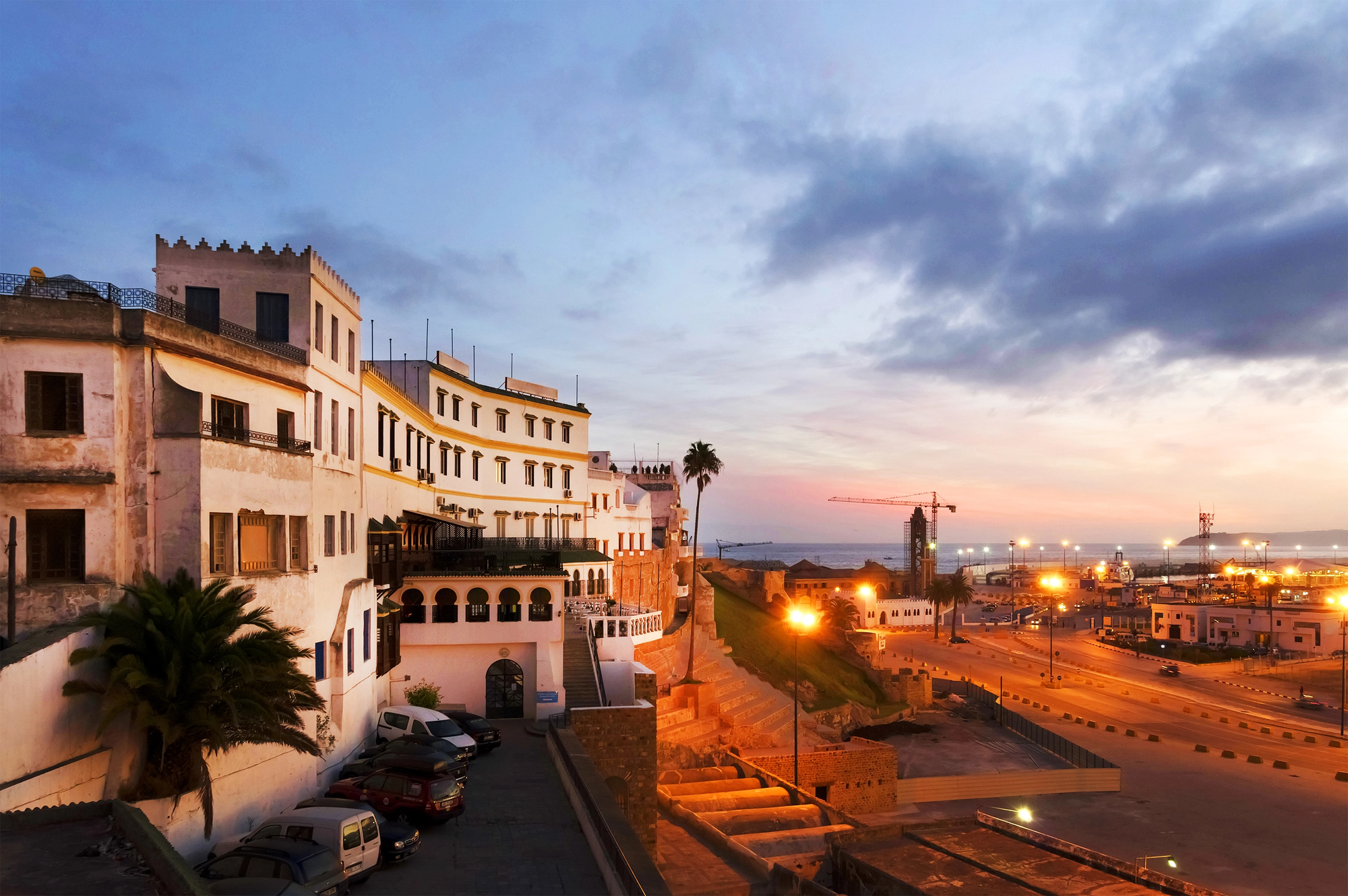
This cosmopolitan gateway between Africa and Europe offers cooking classes reflecting its international character and seafaring history. Tiffi’s Moroccan Cooking School provides personalized one-on-one instruction in traditional spice combinations, with particular emphasis on the Andalusian influences that distinguish northern Moroccan cuisine.
Beyond just cooking, participants can explore traditional mint tea preparation and the ceremonial importance of specific spices in social contexts. The international port history means classes often explore how spice trading shaped Moroccan cuisine, with some workshops offering side-by-side comparisons between Moroccan spice applications and their Spanish or Portuguese counterparts across the strait.
Casablanca
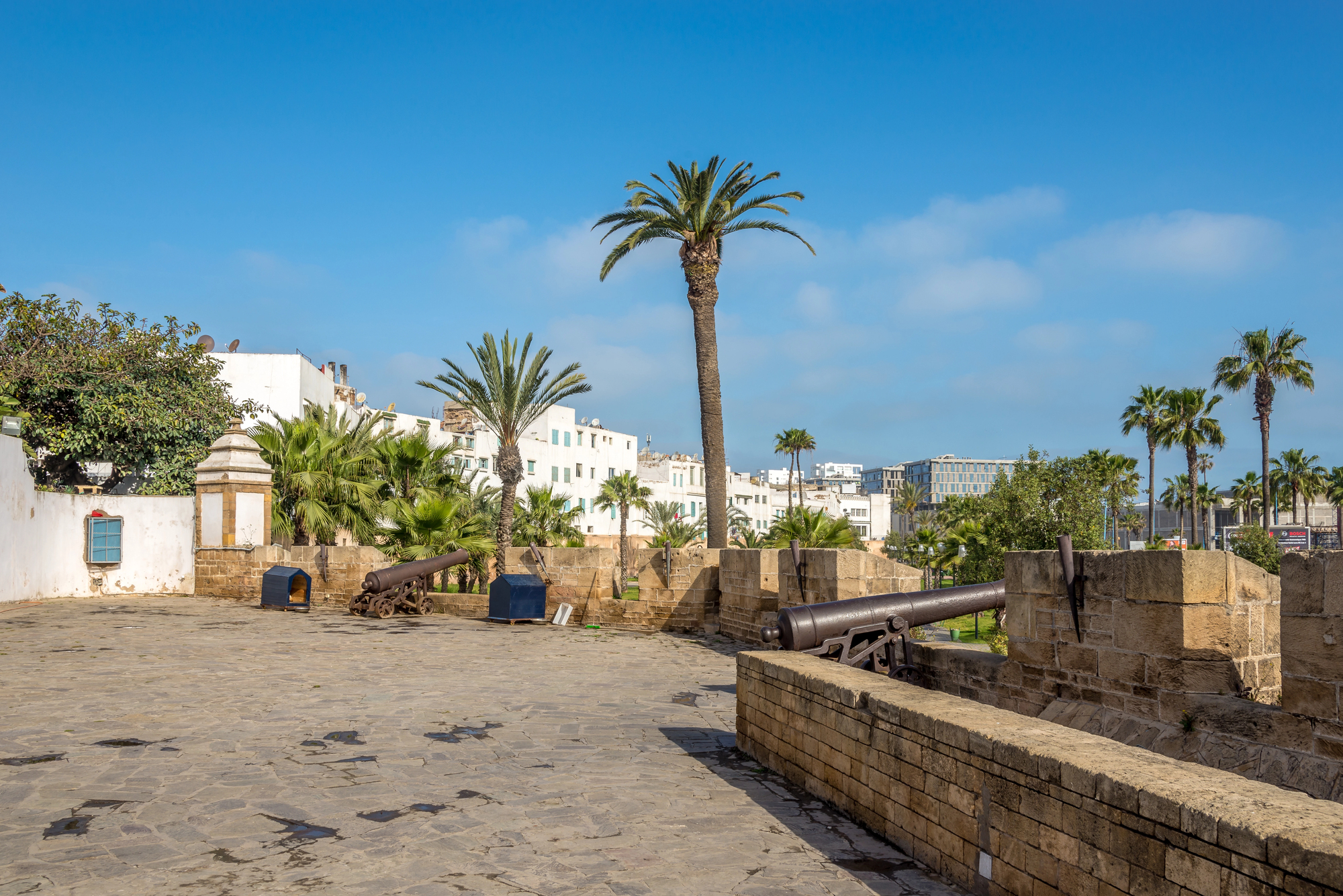
Morocco’s commercial capital offers modern takes on traditional spice instruction. While lacking the ancient medinas of other cities, Casablanca compensates with contemporary cooking schools featuring professional-grade equipment and bilingual instruction.
Traveling Spoon connects visitors with vetted local families who teach personal spice techniques in home environments – perfect for understanding how everyday Moroccans incorporate traditional spice knowledge into modern life. Some classes focus specifically on the economic history of spice trading and how it transformed Moroccan cuisine, making Casablanca particularly interesting for those curious about the historical context behind flavor traditions.
The cosmopolitan population means instructors often demonstrate regional variations, comparing how the same spice blend might be used differently across Morocco.
Like Travel Pug’s content? Follow us on MSN.
Rabat
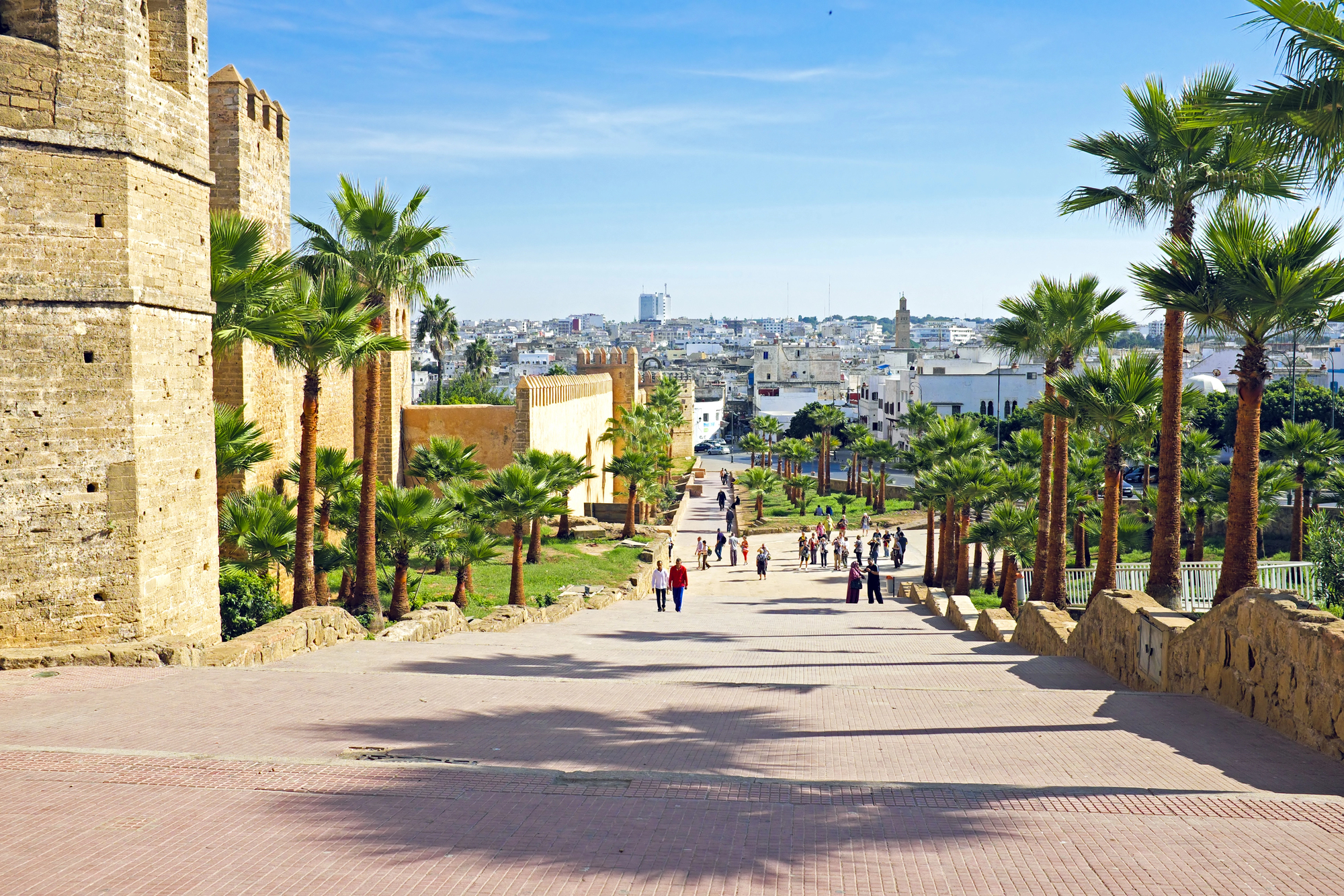
The capital city delivers refined cooking experiences reflecting its status as Morocco’s administrative and diplomatic center. Cooking schools here often emphasize the historical evolution of royal Moroccan cuisine, with particular attention to the precise spice balances that define palace cooking.
Many classes include visits to the Villa des Arts or Mohammed VI Museum of Modern and Contemporary Art to understand how culinary traditions parallel other cultural expressions. The diplomatic community’s presence means instructors frequently speak multiple languages and can explain nuanced spice terminology across Arabic, French, and English.
Rabat’s cooking schools typically maintain excellent connections with government cultural institutions, sometimes offering special lectures from food historians alongside practical cooking instruction.
Tetouan
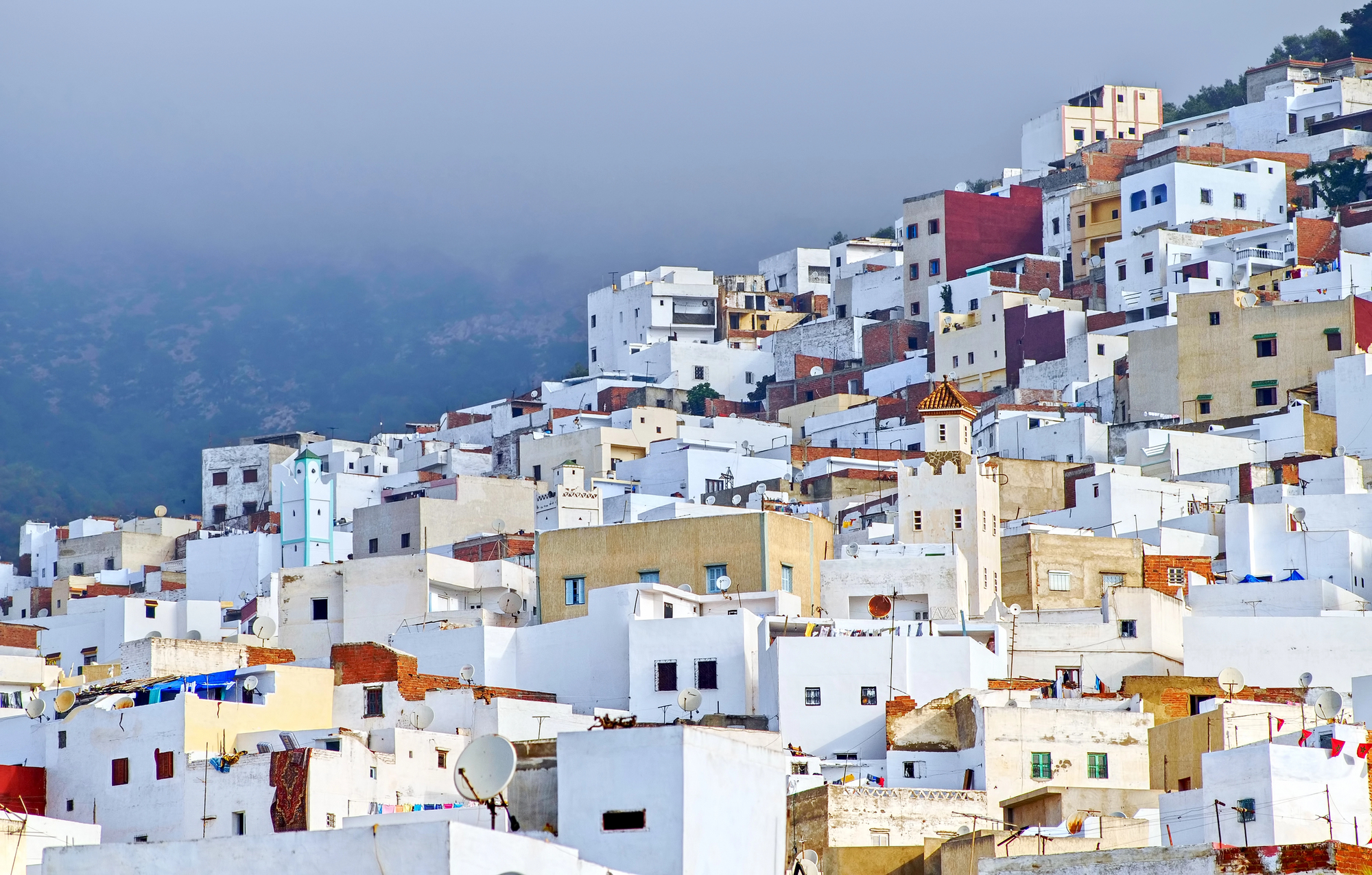
This Mediterranean gem preserves distinctive Andalusian culinary traditions, making it perfect for specialized spice classes focusing on Spain’s historical influence. Local cooking schools emphasize the subtle differences between Tetouani spice applications and those found elsewhere in Morocco.
The proximity to both mountains and sea creates a unique pantry that instructors showcase through traditional recipes rarely found in more touristed cities. Classes often explore the complex history of Moorish-Andalusian cuisine, demonstrating how refugee communities maintained culinary traditions after leaving Spain.
The UNESCO-protected medina contains specialist spice vendors whose knowledge extends back centuries, making Tetouan an excellent destination for serious students of historical spice lore and applications.
Meknes
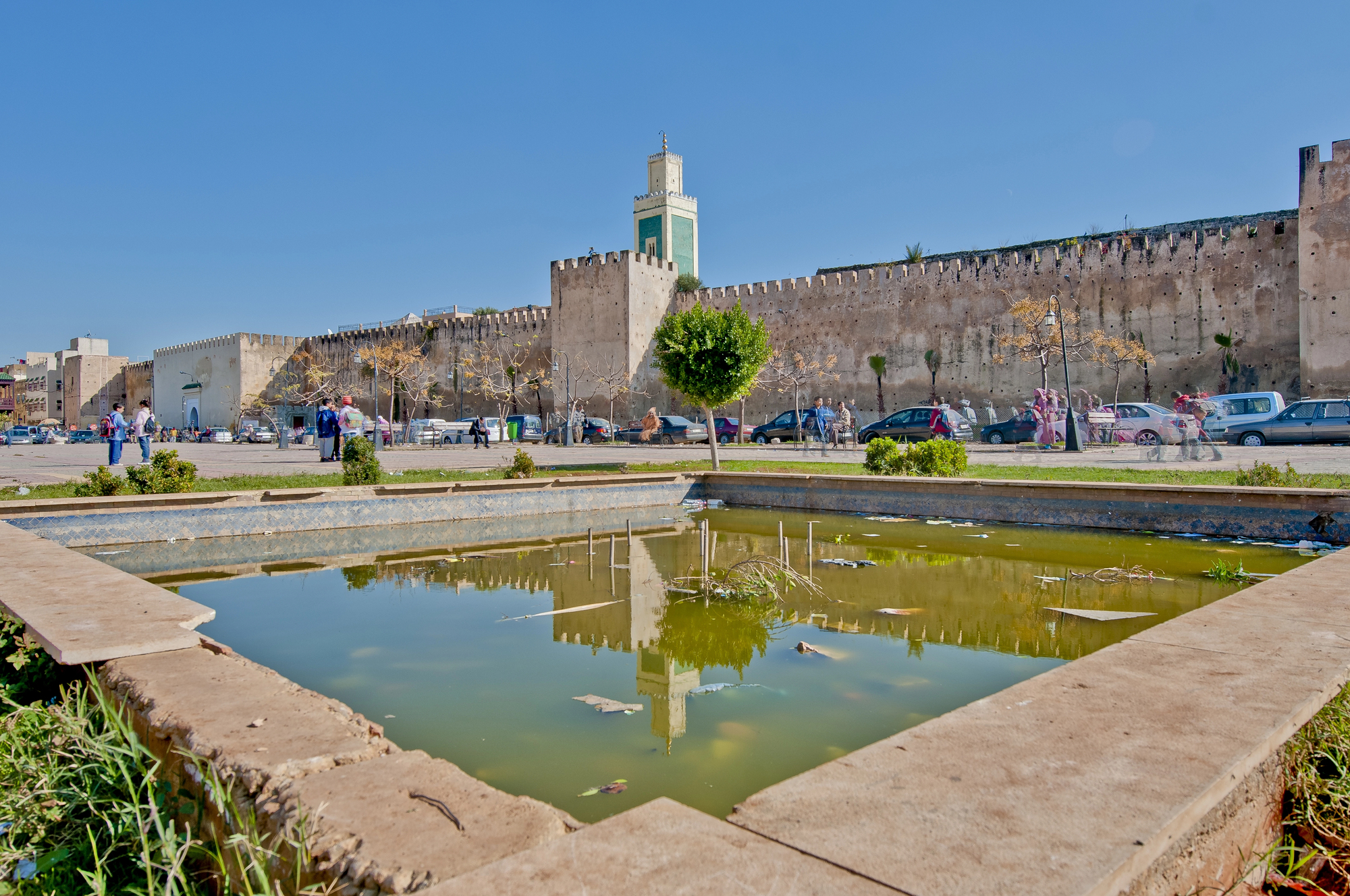
The imperial city’s agricultural bounty shapes cooking classes focused on bringing fresh ingredients alive through masterful spice application. Riad Lahboul offers instruction ranging from half-day workshops to weeklong intensive courses for those seeking comprehensive spice knowledge.
The surrounding region produces stellar olives and citrus ingredients that feature prominently in classes teaching how to balance acidity with warming spices. Many workshops include visits to the massive underground food storage facilities built by Sultan Moulay Ismail, providing historical context for understanding preservation techniques using antimicrobial spices.
Meknes’ relative absence from major tourist routes means cooking classes here often deliver more authentic experiences with instructors accustomed to teaching interested locals rather than casual tourists.
Like Travel Pug’s content? Follow us on MSN.
Agadir
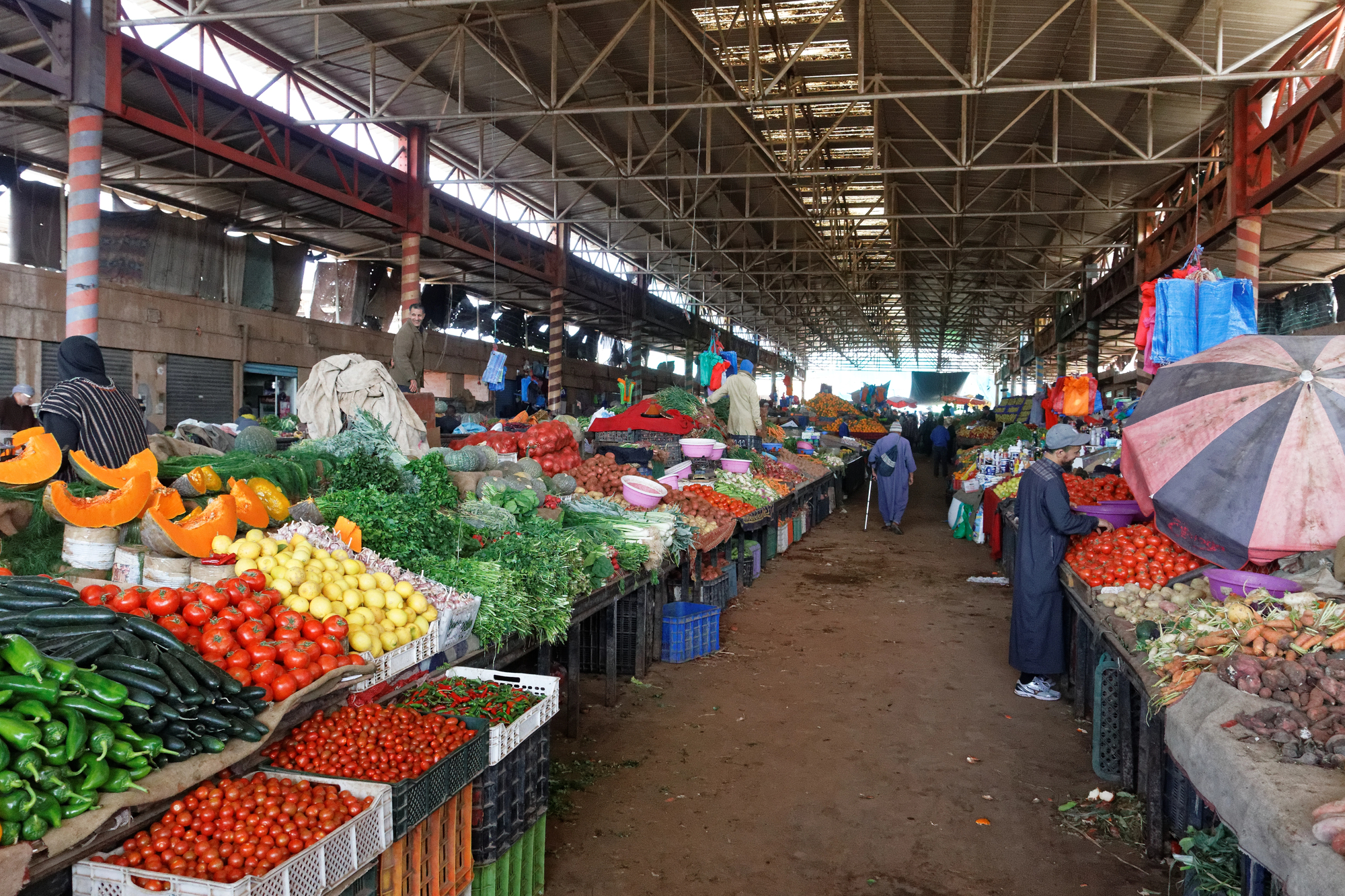
This modern resort city provides accessible cooking workshops highlighting southern Morocco’s distinctive spice traditions. Atlas Kasbah Ecolodge combines culinary instruction with sustainability education, teaching participants how traditional spice knowledge contributes to resource conservation.
Classes emphasize the region’s famous argan oil and honey production, demonstrating how these ingredients partner with specific spice combinations. The coastal location ensures excellent seafood dishes feature prominently, with instructions on traditional spice mixtures designed specifically for fish and shellfish.
The rebuilt modern city lacks a historical atmosphere but compensates with well-equipped teaching facilities and excellent year-round weather for outdoor cooking demonstrations.
Ouarzazate
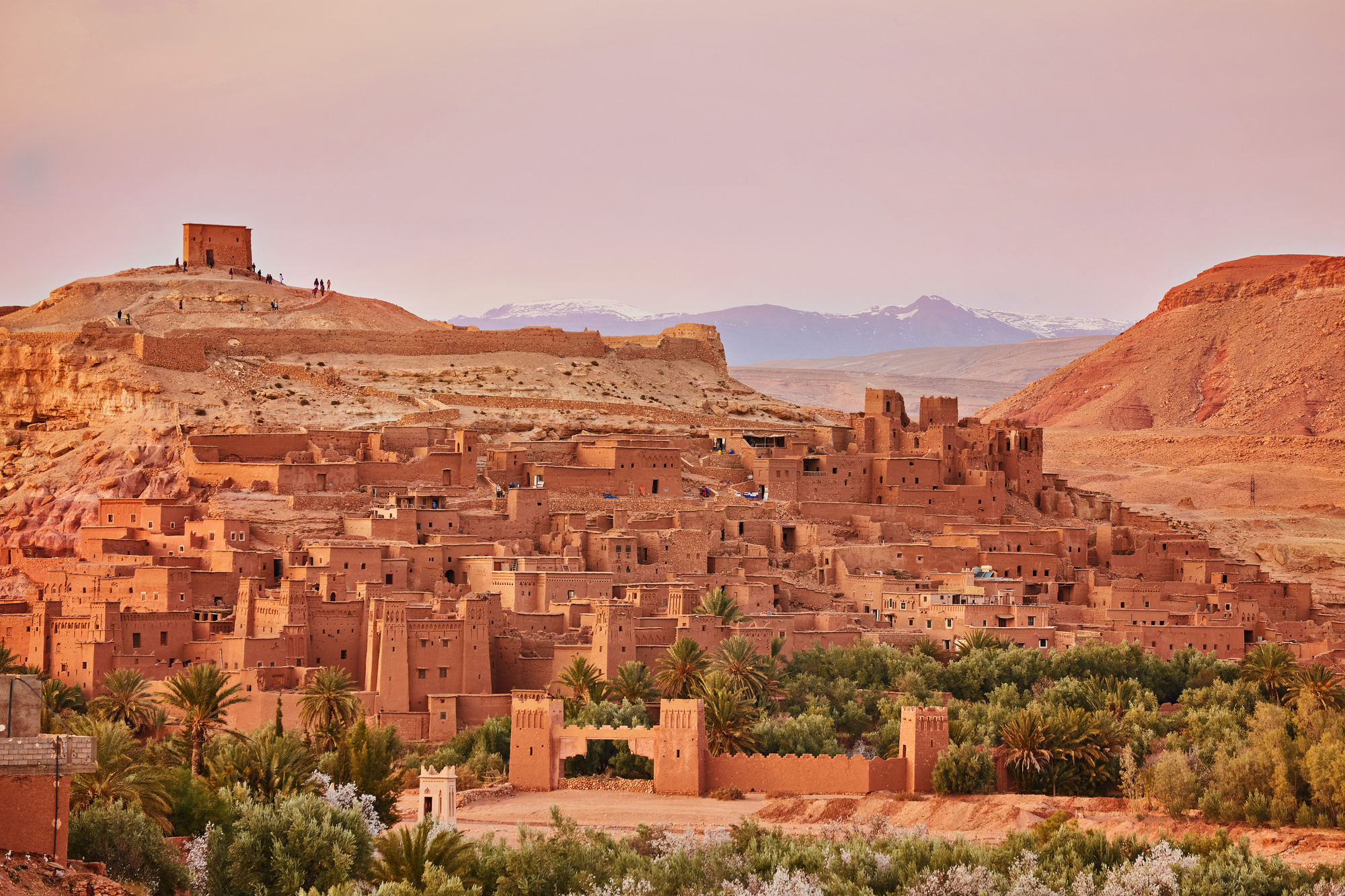
The gateway to the Sahara offers unique classes exploring desert spice traditions that sustained caravans crossing hostile terrain. Cooking workshops here emphasize preservation techniques using antimicrobial spices that allow food to remain edible during long desert journeys.
Many classes incorporate foraging components, teaching participants to identify wild herbs growing in seemingly barren landscapes. The extreme temperature variations between day and night inform instruction on how spice potency changes with cooking temperature and duration.
Film studio tours can sometimes be combined with cooking classes, as many historical epics filmed here have required authentic food preparation for scene authenticity, creating a unique niche of instructors experienced in historical culinary recreation.
Safi
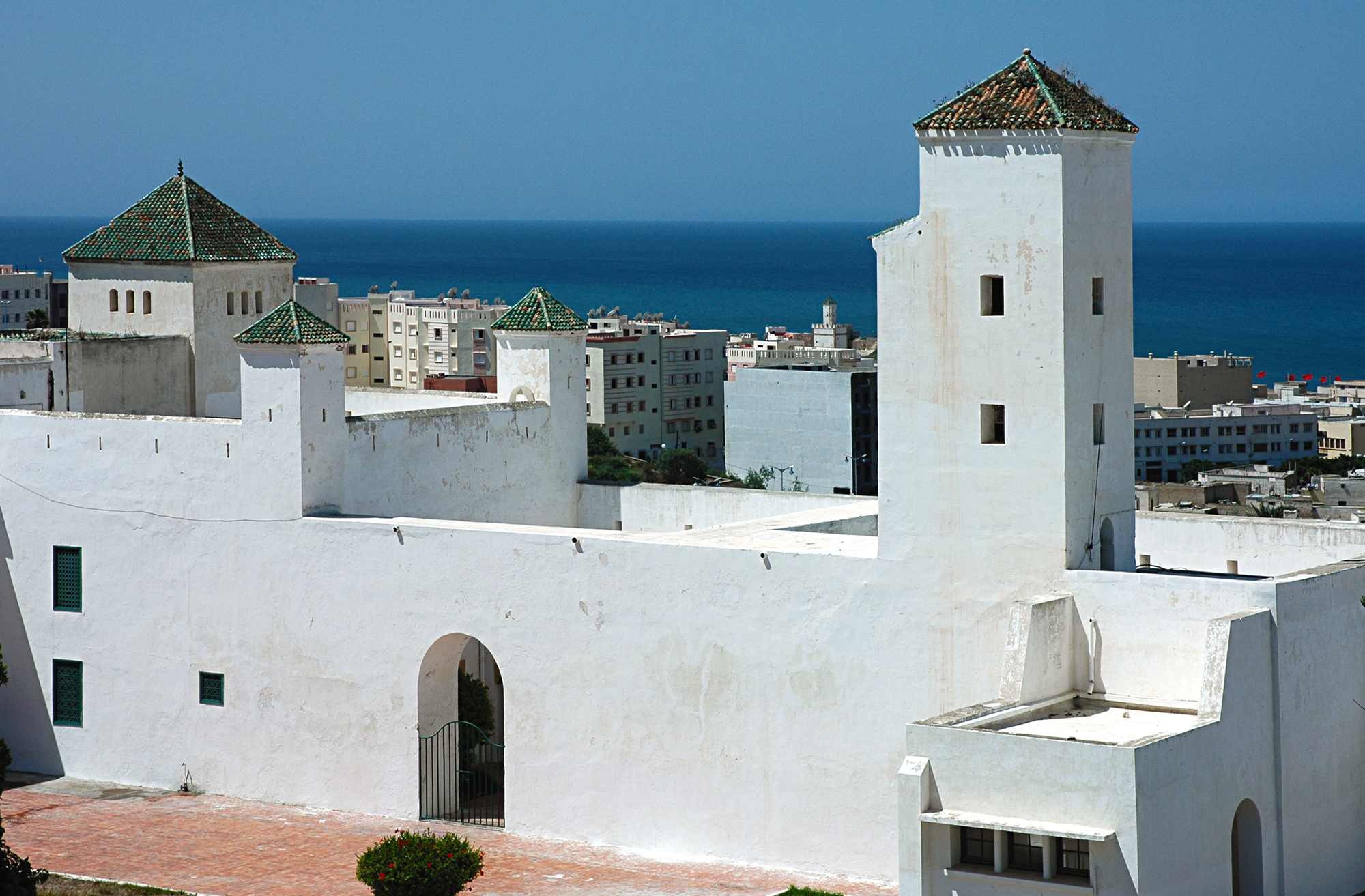
This coastal ceramic center provides specialized workshops on the relationship between traditional pottery and spice-based cooking. Classes demonstrate how specific tagine shapes influence spice distribution during slow cooking.
Beyond technical instruction, workshops explore how ceramic production and spice trading historically developed in tandem, creating regional cooking styles based on available equipment. The major fishing port ensures classes feature excellent instruction on seafood spice applications, particularly sardine preparations using distinctive spice mixtures not found elsewhere.
Workshops often include pottery-making components, allowing participants to create vessels specifically designed for the spice-based dishes they’ve learned to prepare.
Like Travel Pug’s content? Follow us on MSN.
Tafraoute
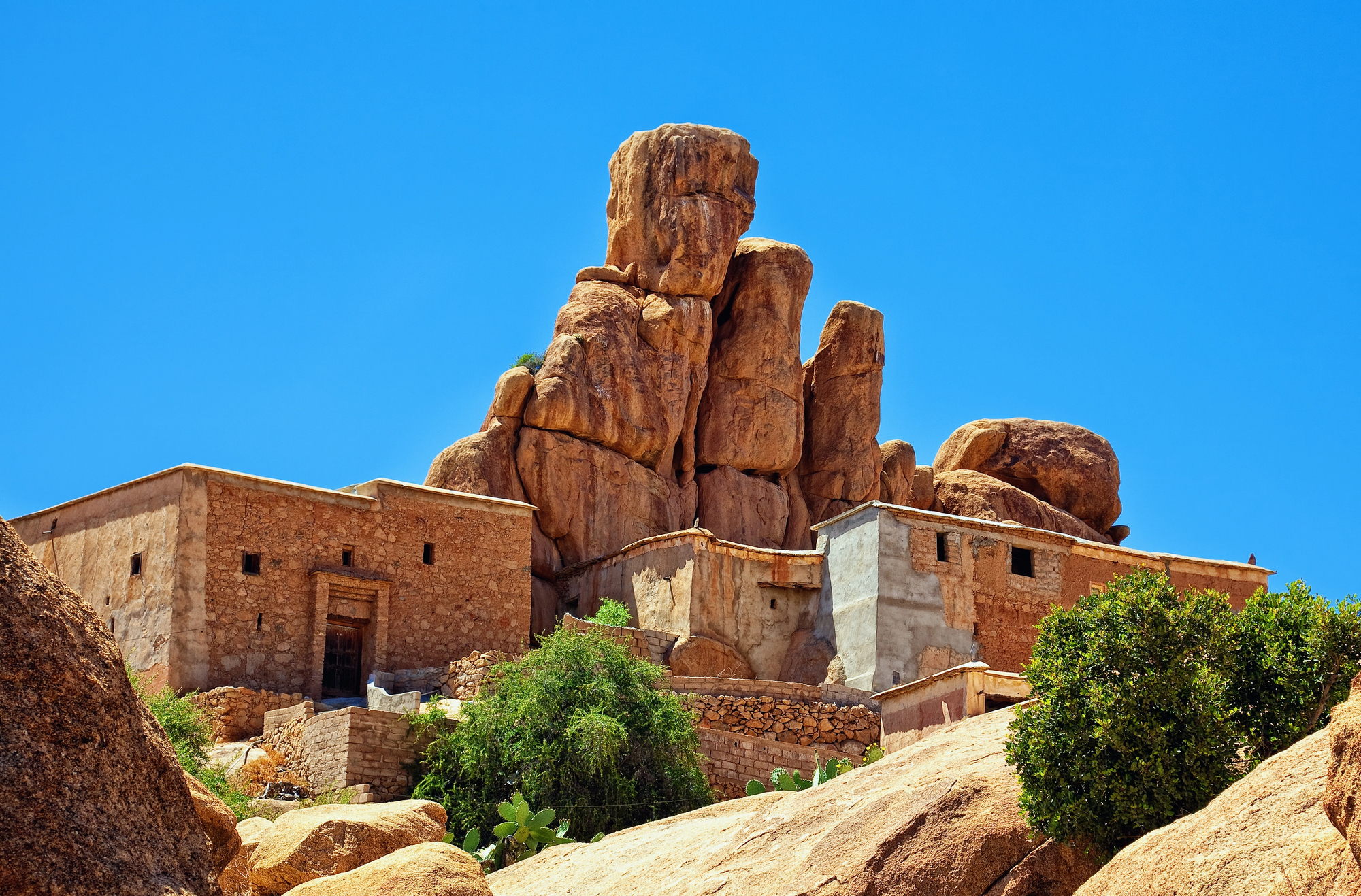
This remote Berber stronghold in the Anti-Atlas mountains preserves cooking techniques predating Arab influence, offering rare insights into indigenous spice applications. Classes here emphasize wild mountain herbs and their traditional medicinal applications alongside culinary uses.
The region’s famous almond and argan production features prominently in workshops teaching traditional amlou preparation – a spread combining argan oil, almonds, and honey with subtle spicing. Many classes incorporate bread-baking in communal ovens, demonstrating how spices performed preservation functions before refrigeration.
The stunning pink granite landscape provides spectacular settings for outdoor cooking demonstrations where traditional clay vessels nestle among natural rock formations, creating unforgettable learning environments.
Experience
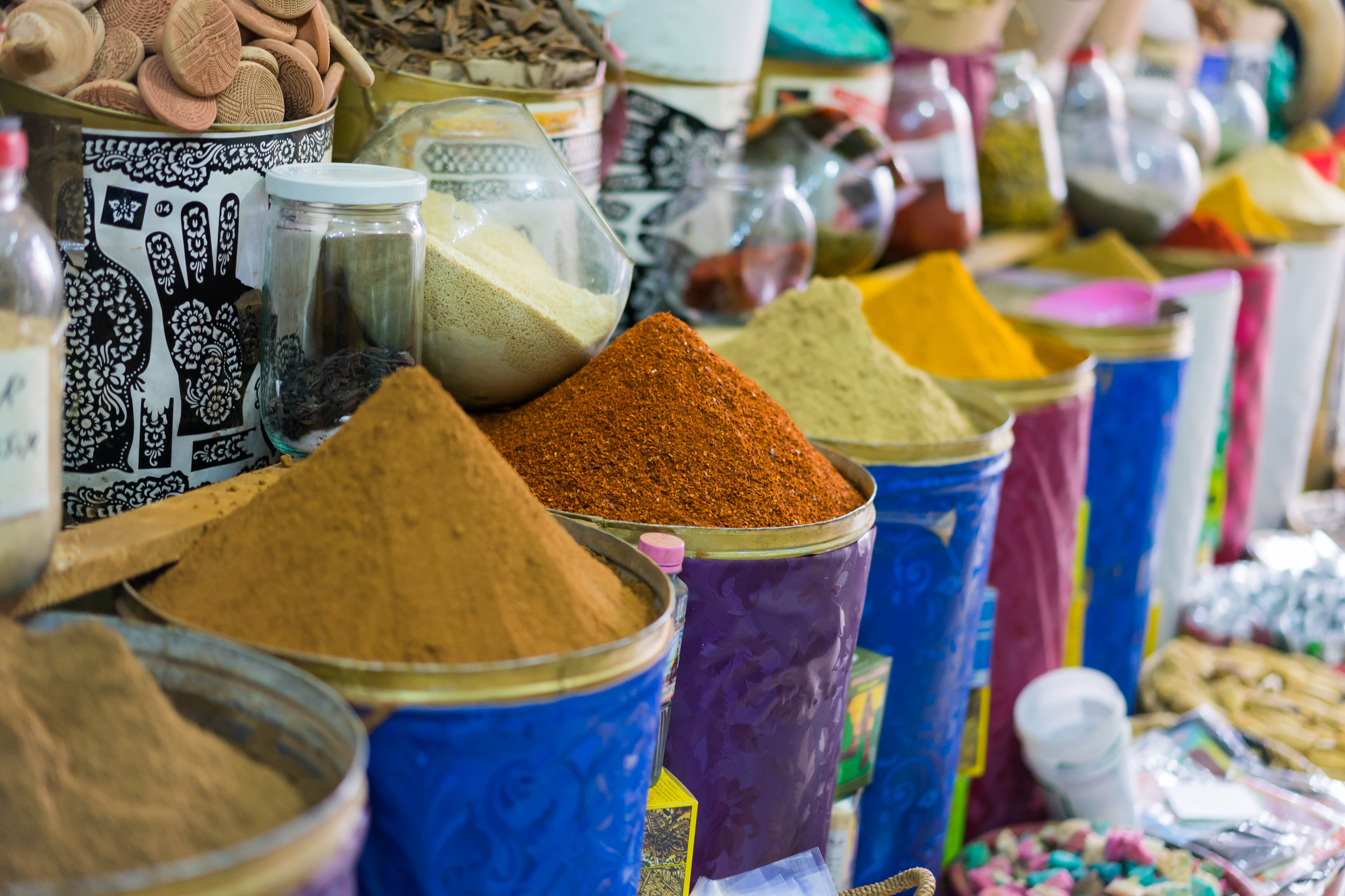
Beyond mere technique, Morocco’s spice classes offer profound cultural immersion. Each city’s approach reflects centuries of history, geography, and cultural exchange.
Whether you’re grinding fragrant mixtures in an ancient Fes kitchen or balancing delicate saffron notes in a breezy Essaouira workshop, these experiences connect travelers with Morocco’s soul through its most accessible art form – food. The knowledge gained extends far beyond vacation memories, becoming a practical skill that transforms home cooking while preserving traditions thousands of years in the making.
As Moroccan cuisine continues gaining global recognition, these intimate classes offer authentic connections to a culinary heritage that has rightfully earned its place among the world’s most celebrated food cultures.
More from Travel Pug

- Cities Growing so Fast You Won’t Recognize Them in 10 Years
- 13 Destinations Where Tourists Regularly Regret Their Trip
- 16 U.S. Cities That Are Quietly Becoming Travel Hotspots
- Where to Travel If You Love Long Bus Rides and Daydreams
- 20 Cities Perfect for Solo Travelers Who Crave Adventure & Culture
Like Travel Pug’s content? Follow us on MSN.
